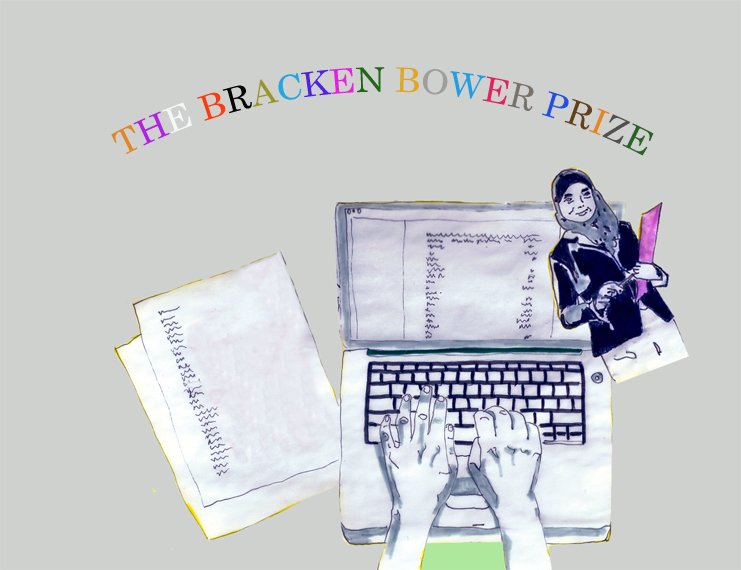Strategic thinking, communication, sales, leadership… Which business development manager skills are the most important attributes to help them identify opportunities, build relationships, and drive growth?

Table of Contents:
- Introduction
- What is a business development manager?
- 10 skills required for a business development manager
The business development manager role requires a mix of skills in development, including strategic thinking, communication, sales, and leadership. As businesses face more competition, a successful business development manager needs a broad skill set to navigate complex markets, create partnerships, and drive growth.
A business development manager (BDM) is essential for helping organisations grow and expand by identifying new business opportunities, building client relationships, and understanding market trends.
What is a business development manager?
Business development managers, often called BDMs, are key members of the go-to-market (GTM) team. They are responsible for creating lists of sales leads and pitching to potential clients to grow the company’s customer base. In sales terms, they help guide potential customers from the top of the sales funnel to becoming signed clients. The role of a business development manager requires various skills, such as strategic planning, project management, and successful negotiation.
Tasks and responsibilities
While the specific duties may vary depending on the company and industry, some common tasks include:
- Identifying opportunities in target markets for the organisation’s products and services.
- Generating leads through cold calling potential clients or networking at trade shows.
- Building and maintaining relationships with key customer accounts.
- Keeping informed about the latest industry trends, including how competitors are positioned in the market.
- Assessing client needs and determining how well the company can meet those needs.
- Following up on new leads and referrals provided by the sales team.
- Preparing status reports on goals and progress.
- Using customer relationship management (CRM) software, such as Salesforce, to manage client interactions.
10 skills required for a business development manager
- Strategic thinking and planning
One of the most important skills for a business development manager is the ability to think strategically. A BDM must analyse market conditions, spot growth opportunities, and create actionable plans that align with the company’s goals. Strategic thinking involves understanding the larger market landscape, recognising trends, and anticipating potential challenges.
In addition, planning is equally important, as business development managers need to develop detailed roadmaps for reaching their targets. This includes setting clear goals, determining the necessary resources, and outlining the steps needed to achieve objectives. Good planning enables BDMs to carry out their strategies effectively and make adjustments when required.
- Market research and analysis
A business development manager must stay ahead by continuously researching the market. This means identifying potential clients, competitors, and industry trends. Being skilled in market research allows a BDM to uncover valuable insights that can guide their strategy and decision-making.
Analytical skills are essential for interpreting data, understanding customer behaviour, and predicting future market trends. By using data-driven insights, business development managers can make informed decisions that help them seize opportunities, tackle challenges, and position the company positively in the marketplace.
- Networking and relationship building
Building and maintaining strong relationships with clients, partners, and stakeholders is central to business development. Networking is a vital skill that enables a BDM to expand their professional connections and develop relationships that can lead to new business opportunities.
A successful BDM needs to be a skilled networker, able to connect with key decision-makers across different industries. They must also nurture these relationships over time to ensure they remain mutually beneficial. Building trust and fostering long-term partnerships is crucial for business growth, and this can only be achieved through consistent and genuine relationship management.
- Communication skills
Communication is a key part of business development, as BDMs need to express ideas, proposals, and strategies clearly and persuasively. Whether pitching a new idea to a potential client, negotiating a deal, or giving a presentation to stakeholders, effective communication is essential.
Business development managers must adapt their communication style to suit different audiences. For example, they might need to be persuasive and confident when pitching to a potential client, while being more collaborative and empathetic when discussing strategy with internal teams. Clear, concise, and impactful communication helps BDMs build trust and influence others, which ultimately contributes to the success of their business development efforts.
- Sales and negotiation skills
Business development managers are often responsible for closing deals, which requires strong sales and negotiation skills. These skills enable them to present their company’s products or services in a way that meets the client’s needs and offers a compelling value proposition.
Negotiation is a vital part of securing deals and partnerships. A successful BDM must be able to balance achieving the company’s goals with satisfying the client’s expectations. This requires an understanding of negotiation tactics, as well as the ability to listen carefully, find common ground, and suggest win-win solutions.
- Financial acumen
A solid understanding of financial principles is important for any business development manager. BDMs need to evaluate the financial viability of potential deals, forecast revenue, and assess the potential return on investment (ROI).
Financial knowledge enables business development managers to make decisions based on data and evaluate the long-term effects of their strategies on the company’s profitability. Understanding key financial metrics and being able to interpret financial reports also helps BDMs present business cases to stakeholders and justify investments in new projects.
- Problem-solving and critical thinking
The business development landscape often presents challenges, from finding new opportunities in a crowded market to overcoming hurdles in negotiations. As a result, strong problem-solving skills are essential for a business development manager.
Critical thinking enables BDMs to tackle challenges creatively and come up with innovative solutions. They must evaluate multiple options, weigh risks and benefits, and make decisions that promote growth. By developing a strong problem-solving mindset, business development managers can overcome challenges and turn potential setbacks into opportunities for growth.
- Project management
Business development initiatives often involve complex projects that require careful planning, coordination, and execution. Business development managers must possess strong project management skills to ensure these initiatives are completed on time and within budget.
Project management includes setting clear objectives, allocating resources effectively, and making sure that all stakeholders are aligned with the project’s goals. A BDM must be skilled at managing timelines, prioritising tasks, and monitoring progress to keep the project on track. Strong organisational skills and attention to detail are vital for ensuring the success of business development projects.
- Adaptability and resilience
Adaptability is a key skill for business development managers. Market conditions, client needs, and industry trends can shift quickly, and BDMs must adjust their strategies accordingly. Being flexible allows them to stay competitive and seize new opportunities as they arise.
Resilience is also important, as the role of a BDM can be challenging and sometimes unpredictable. Setbacks, such as losing a key client or failing to close a deal, are unavoidable in business development. However, resilient BDMs can recover from these challenges, learn from their experiences, and continue to seek new opportunities with renewed determination.
Read more: Small business challenges 2025
- Leadership and team collaboration
While business development managers often work independently to pursue opportunities, they must also be effective leaders and collaborators. BDMs need to work closely with other departments, such as marketing, sales, and product development, to make sure their strategies align with the company’s overall goals.
Leadership skills are vital for guiding cross-functional teams and driving initiatives forward. Business development managers must inspire and motivate others, creating a collaborative environment that encourages innovation and growth. By working closely with teams across the organisation, BDMs can ensure their business development efforts are well-supported and integrated into the company’s broader strategy.
- Customer-centric approach
A deep understanding of the customer’s needs and expectations is essential for business development managers. BDMs must adopt a customer-focused approach when identifying new business opportunities, ensuring their solutions address the client’s pain points and provide real value.
By concentrating on the customer’s needs, business development managers can build lasting partnerships based on trust and mutual benefit. This approach not only helps in closing deals but also encourages client loyalty and creates opportunities for future business.
- Digital literacy and technological savvy
Business development managers must be skilled in using technology to drive growth. This includes understanding digital marketing tools, CRM software, data analytics, and other platforms that can help identify new business opportunities and simplify operations.
Being proficient in technology allows BDMs to work more efficiently, analyse customer data, and automate tasks. Furthermore, staying up-to-date with emerging technologies enables them to recognise new trends and incorporate innovative solutions into their business development strategies.

Shikha Negi is a Content Writer at ztudium with expertise in writing and proofreading content. Having created more than 500 articles encompassing a diverse range of educational topics, from breaking news to in-depth analysis and long-form content, Shikha has a deep understanding of emerging trends in business, technology (including AI, blockchain, and the metaverse), and societal shifts, As the author at Sarvgyan News, Shikha has demonstrated expertise in crafting engaging and informative content tailored for various audiences, including students, educators, and professionals.





























